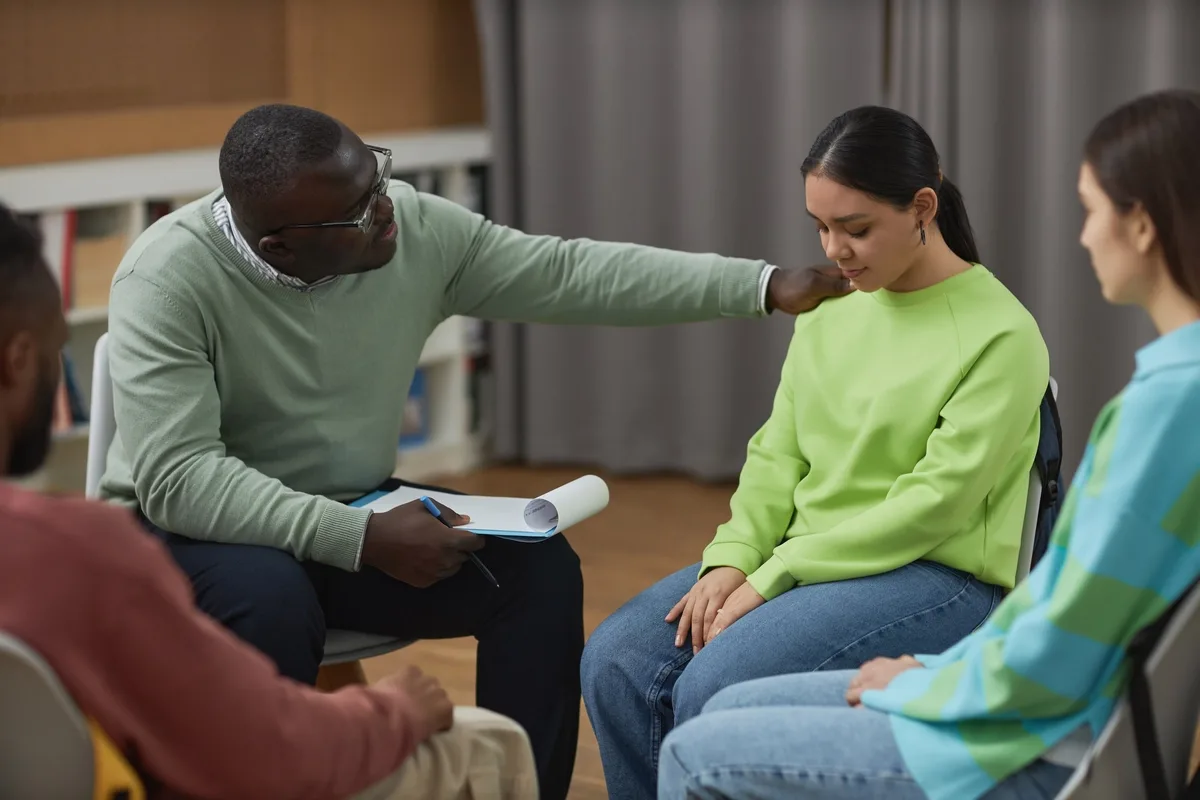24/7 Helpline:
(866) 899-111424/7 Helpline:
(866) 899-1114
Learn more about PTSD Treatment centers in Okahumpka
PTSD Treatment in Other Cities

Other Insurance Options

Choice Care Network

Magellan Health

WellPoint

Meritain

Oxford

Highmark

Optima

Holman Group

Access to Recovery (ATR) Voucher

Molina Healthcare

BHS | Behavioral Health Systems

AllWell
Beacon

Evernorth

Aetna

United Health Care

Group Health Incorporated

Self-pay options

Premera

Humana























